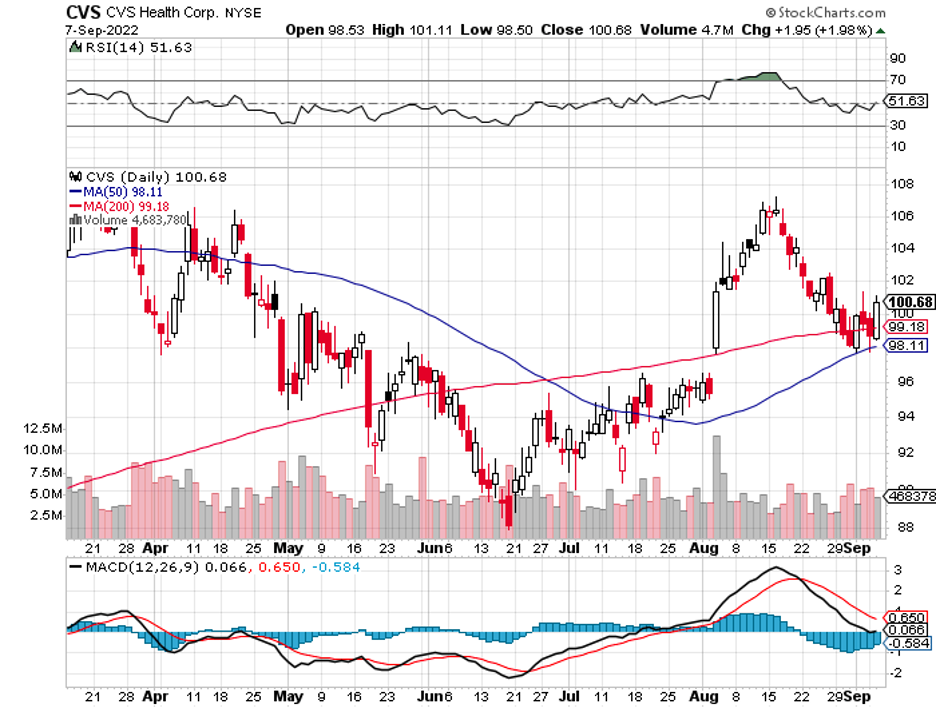Won't Go Down Without A Fight
Bigger is better. At least, that’s what CVS Health (CVS) seems to believe.
Recently, the big news in healthcare is CVS’ move to acquire Signify Health (SGFY) for $8 billion, pushing it even nearer to its goal of becoming an integrated healthcare provider.
The deal, anticipated to close by the first quarter of 2023, is an all-cash deal with CVS paying $30.50 per share.
While this deal isn’t exactly something new, Signify has been known to be a great innovator in the fast-moving space.
The critical factor in how Signify is different from other companies lies in its strategy, which leans more on a technology- and data-focused model that caters to the gig economy. Under its scheme, clinicians are likened to Uber drivers in terms of independence.
Meanwhile, CVS’ move to swoop in and buy Signify actually threw a wrench in the plans of another company hoping to dominate in the healthcare space: Amazon (AMZN).
Just a few weeks before this announcement, Amazon’s entry into the healthcare industry felt unstoppable. The e-commerce giant started its journey with the $3.9 billion purchase of One Medical (ONEM), a doctor’s office chain, with the goal of continuing its expansion through a deal with Signify.
The encroachment of the retail giant seemed like a massive issue for existing players in the healthcare industry, particularly CVS, which was said to have lost out in the bidding war for ONEM.
Needless to say, this makes CVS’ success in buying Signify an even sweeter victory.
More importantly, this decisive move from CVS makes it apparent that it won’t go down without a fight. That is, Amazon’s march into the healthcare industry will not be completely unopposed.
Basically, Signify sends clinicians to patients’ homes to help them assess their conditions. However, the company does not offer home health services at all.
CVS’ decision to pursue this deal makes it clear that the company is veering toward primary care delivery. Signify’s services can integrate almost seamlessly with the CVS Health ecosystem, with clinicians being afforded the opportunity to simply direct patients to other CVS products and services.
However, not all plans are perfect.
One red flag in this deal involves the major clients of Signify: Humana (HUM) and UnitedHealth (UNH).
Given that CVS is a competitor, they may be put off by the new arrangement and decide to pull out of their existing contracts. This is an understandable concern since one of the main attractions in availing of Signify’s services is its status as an independent entity. This ensures that it operates without any bias and allows equal participation among all payers.
While Signify execs claim that all stakeholders are “very supportive” of this deal, the effects of the plan remain to be seen.
Either way, home-based healthcare is emerging as a new and lucrative trend in the industry. Hence, more and more companies are expected to make similar decisions.
Earlier this month, Walgreens Boots Alliance (WBA) executed a similar move when it acquired a majority share of CareCentrix. Even UNH shelled out a premium when it bought LHC Group, a home-health provider, for $5.4 billion this spring.
Whether it’s caused by an aging population battling mobility issues or healthier patients who realized the price of convenience during the pandemic, it’s undeniable that the demand for home-based healthcare is growing.
Obviously, companies like CVS are capitalizing on that trend.
So far, CVS’ strategy to develop a one-stop-shop for healthcare looks to be on track. The fact that it’s managing to build out a full-scale integrated model while practically doubling its stock price in the last three years makes it an excellent stock to own for the long haul.
If the company continues this trajectory and expansion into primary care, then CVS could quickly become one of the biggest healthcare stocks globally.


